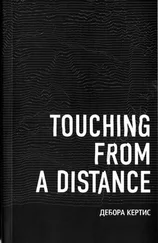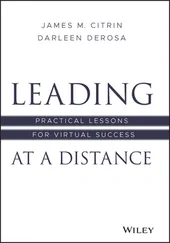All of a sudden, a group of white men came galloping down the slope, screaming, roaring, and brandishing their rifles. Confusion and dread rippled through the Indian circle. Caught between the fire pouring from the wagons and the wider ring the newly arrived rescuers were forming around them, the Indians started hooting and shrieking and galloped south down the valley. A few of the newcomers chased after them but desisted as soon as the Indians turned right and disappeared over the brow of the western hills.
Inside the barricade, there was a profusion of embraces, tears, and invocations. Some congratulated Jarvis. Håkan went to see Helen and the boy. Undisturbed by the commotion, the child slept in his astoundingly clean bed. Håkan put his hand on the boy’s forehead. Still a low fever. Helen put her hand on Håkan’s. The softness, the wonder, the desire displaced everything—the world, his own self. She rested her head on his shoulder. He caressed her hand with his thumb, hoping it would not offend her. She came closer. Their thighs touched. They sat looking at the boy, ignoring the sound of moving wagons.
“Hawk!”
Jarvis wanted him. Håkan summoned all his courage to look at Helen. Her eyes were still on the boy, but the smile on her face was for Håkan.
He got out of the wagon. Jarvis was waving at him from the opening they had made in the circle to let their rescuers through.
“They’re coming. I want you here.”
Clustered by family, the emigrants stood in one expectant line. The sun stung like an open wound. Two mating dogs looked up with dejected piousness. A little boy fired his carbine-shaped stick at the hills. A few birds circled over the dead ox.
“Thank you, friends! Welcome! Thank you!” cried Jarvis on behalf of the whole party as the men rode into the open circle.
Some women flattened their aprons. Some men rearranged their hats. The riders were quiet.
“Thank you,” Jarvis repeated, sunnier than ever. “Please. What can we do for you?”
“Bread. Haven’t had bread for ages,” replied the leader, a man in a hat with the crown belled out, while discreetly gesturing his companions to specific positions.
“Somebody! Bread!” shouted Jarvis.
There was a moment of hesitation. Finally, two of the women headed toward their wagons, running with short steps and gathered skirts. One of the riders took his post by the opening, next to Håkan. Nobody said a word. There was an anthill by Håkan’s foot. He looked at the insects, then up at the sky, and then at the man next to him. The rider’s face was dotted with those yellow, red, and blue spots that dance in front of eyes that have just gazed into the glaring sky. Håkan blinked. The dancing spots faded. He blinked again. The dancing spots were gone. Still, on the rider’s face, there were yellow, red, and blue stains. Paint stains. Håkan felt weightless. His knees trembled. He stumbled and stepped on the anthill. The little boy fired his stick carbine. The women returned with their short steps and gathered skirts, carrying round loaves of bread. Helen looked out of her wagon and smiled at Håkan. The rider followed her gaze, looked down at Håkan, and understood that he had seen his yellow, red, and blue paint stains. Both men were paralyzed during this moment of mutual recognition. The rider smeared the paint off his face and then looked at his fingers. Across the circle, the leader, in the process of breaking a loaf in half, saw the last part of this scene. His eyes shrank to slits. He dropped the bread and leveled his rifle at the line of emigrants.
“Charge, by Jehu!” he cried.
They shot at anyone in their line of fire—armed or unarmed, man or woman, adult or child. The rider next to Håkan was transfixed. Håkan’s skin tingled with terror as he drew his pistol and shot him in the heart. Winded and horror-stricken, Håkan found cover behind some sacks of grain. Smoke. Ringing ears. Crawling silhouettes. Whinnying. Frightened dogs and greedy dogs. Cries. His own blood throbbing. That sense of weightlessness.
From behind the hills right next to them, the fake Indians reemerged and streamed into the circle, joining the riders and opening fire on the emigrants. Those who were able to fired back. One of the Indian imposters, shot in the chest, fell next to Håkan. He was alive but would soon drown in his own blood. Håkan crawled up to him. He could hear the sound of the sagging lung flopping around in his rib cage. Håkan stared into the man’s blue eyes as he gave his last shallow breath.
The gunshots grew sporadic. There was no time to reload. Guns were replaced by blades, clubs, and fists. The mutilated boy’s father lay dead a few steps away from his team of oxen. Håkan saw three men climbing into the wagon where Helen and her brother were. He got up and grabbed a loose kingbolt from a wagon. One of the Indian impersonators intercepted him. He had a knife. For the first time in his life, Håkan felt, in his flesh, in his bones, in every limb, the full extent of his own size and the power that came with it. He raised his arm, swung the kingbolt, and knocked the man’s brains out. After picking up the knife, he reached the wagon and looked in. The boy’s throat had been slit. Two men, naked from the waist down, were hunched over Helen. A third man held a blade to her neck. No one noticed Håkan. He stabbed the one who was moving back and forth on top of Helen. Surprised, the one with the knife slashed her throat. Håkan drew his gun and shot them both.
Håkan was pulled out of the wagon by the vortex of violence that still spun around the wheeled camp. He screamed and sobbed like a child as he fought the pillagers. He was only aware of each one of the bodies in front of him that needed to be destroyed. He had no clear recollection of his deeds, but his impressions endured. He remembered thinking of his own face, disfigured and reddened by his screams as he made each one of the three shots left in his pistol count. He recalled a new part of his conscience coming into existence and perishing as he brained a man with the butt end of his gun. He had a keen memory of his departure from himself as he stabbed someone in the liver. He knew he had killed and maimed several men, but what remained most vividly in his mind was the feeling of sorrow and senselessness that came with each act: those worth defending were already dead, and each of his killings made his own struggle for self-preservation less justifiable.
They were drunk. One song kept coming back, interrupting their boisterous ramblings. Håkan could not make out the words, but for some reason, it made him think of a wedding. They had put a garland on his head and called it a crown. “To the Hawk,” they cried before each drink. Jarvis insisted that he celebrate with them, and Håkan could only make him stop by putting the vile bottle to his lips and pretending to take a gulp. “To the Hawk!” Håkan stared at the fire as if the flames were fueled solely by his gaze.
The land was hard and rocky, and they had buried their dead in shallow graves. Parents and widowed spouses stared at their mounds of dirt. Håkan placed Helen with her family in a site far away from the rest. He was about to put his lips to her forehead but was sickened to discover that he found it easier to kiss her now that she was dead.
Their enemies were left to rot. The majority had died by Håkan’s hand. Jarvis said the plunderers had retreated once they saw that they stood no chance in hand-to-hand encounters. And that had been thanks to Håkan. He made it too costly for them. Or something like that. Håkan was not sure. “To the Hawk!”
They interrogated the only survivor who had been left behind. Håkan understood most of what the dying man said—he spoke slowly, making long pauses to catch his breath.
Читать дальше












